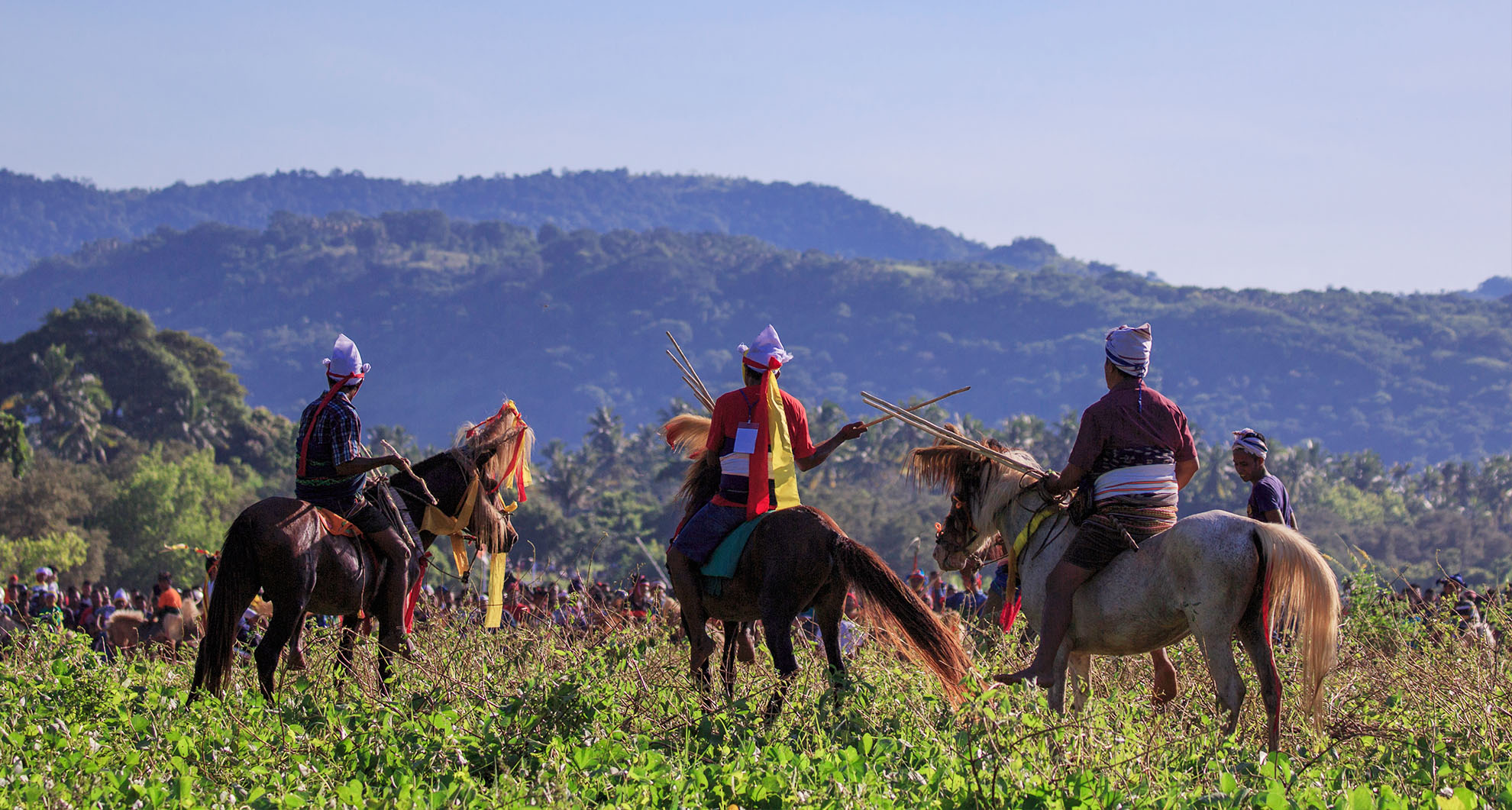If you’re a horse enthusiast and love the thrill of horseback riding, then you’ll be excited to explore different horseback riding festivals around the world. From the elegant and prestigious Spanish Riding School in Vienna to the thrilling and action-packed Calgary Stampede in Canada, these festivals offer a unique and unforgettable experience for both riders and spectators alike. Whether you’re interested in showcasing your horsemanship skills, watching thrilling equestrian competitions, or simply immersing yourself in the rich history and traditions of horseback riding, these festivals have something for everyone. So saddle up and get ready to embark on a fascinating journey through the world of horseback riding festivals.
Different Types of Horseback Riding Festivals
Jumping Festivals
Jumping festivals focus on the equestrian sport of show jumping, where horse and rider navigate a course of fences. These festivals showcase the agility, speed, and precision of horse and rider as they tackle challenging jumps of various heights. Spectators can expect to see thrilling competitions with riders aiming to complete the course in the fastest time without knocking down any jumps.
Dressage Festivals
Dressage festivals highlight the discipline of dressage, a highly trained form of riding that focuses on the horse’s ability to perform precise and controlled movements. During dressage competitions, horse and rider must execute a series of movements with grace, harmony, and smoothness. These festivals offer spectators the opportunity to appreciate the skill and partnership between horse and rider as they perform intricate patterns and maneuvers.
Endurance Riding Festivals
Endurance riding festivals celebrate the sport of long-distance riding, where horse and rider cover challenging terrains over extended distances. In endurance riding, the focus is on the horse’s stamina, fitness, and ability to complete the course within a set time. These festivals often feature multi-day competitions with varying distances, offering breathtaking scenery and showcasing the bond between horse and rider in endurance challenges.
Western Riding Festivals
Western riding festivals embrace the traditions and skills of Western-style riding. These festivals feature events such as barrel racing, reining, roping, and cutting. Western riding showcases the versatility and athleticism of Western-bred horses and their riders. Attendees can experience the thrill of fast-paced events, precision maneuvers, and the rich heritage of Western horsemanship.
Trail Riding Festivals
Trail riding festivals provide a more relaxed and scenic experience for horseback riders. These festivals focus on exploring nature trails and enjoying leisurely rides through picturesque landscapes. Trail riding festivals often include guided group rides, camping opportunities, and social gatherings for horse enthusiasts to enjoy the beauty of nature while engaging in a shared passion for horseback riding.
Top Horseback Riding Festivals Around the World
Royal Windsor Horse Show, UK
The Royal Windsor Horse Show is a prestigious event held annually in the United Kingdom. It features a wide range of equestrian disciplines, including show jumping, dressage, driving, and endurance riding. The show is known for its royal connections, as it takes place in the stunning grounds of Windsor Castle. Spectators can enjoy world-class competitions, stunning displays, and browse through various vendors offering equestrian products and services.
Mongol Derby, Mongolia
The Mongol Derby is an epic and challenging horseback riding festival held in Mongolia. It is often referred to as the longest horse race in the world, covering over 600 miles across the Mongolian steppe. Participants ride semi-wild Mongolian horses and navigate through difficult terrains, testing their horsemanship skills and endurance. The Mongol Derby offers a unique cultural experience, immersing riders in the rich history and traditions of the Mongolian nomads.
Feria del Caballo, Spain
Feria del Caballo, also known as the Horse Fair of Jerez, is a vibrant and lively festival held in Jerez de la Frontera, Spain. This festival celebrates the Andalusian horse breed, known for its beauty and grace. Visitors can witness stunning dressage displays, lively parades, and flamenco performances. The fair also offers opportunities for horse enthusiasts to engage in equestrian competitions, exhibitions, and indulge in the local cuisine and sherry tastings.
Canadian Finals Rodeo, Canada
The Canadian Finals Rodeo (CFR) is a thrilling horseback riding festival held in various locations across Canada. It showcases the skill and bravery of rodeo athletes in events such as bull riding, saddle bronc, steer wrestling, and barrel racing. The CFR attracts top rodeo competitors from across the country, and spectators can witness exhilarating performances, lively music, and the infectious rodeo atmosphere.
Chincoteague Pony Swim, USA
The Chincoteague Pony Swim is a unique and charming festival held on Chincoteague Island in Virginia, USA. This event involves the annual swim of the famous wild Chincoteague ponies from Assateague Island to Chincoteague Island. Spectators can witness the majestic ponies braving the waters, and the festival includes pony auctions, parades, and various family-friendly activities. The Chincoteague Pony Swim offers a memorable experience, connecting people with the beauty and spirit of these iconic horses.
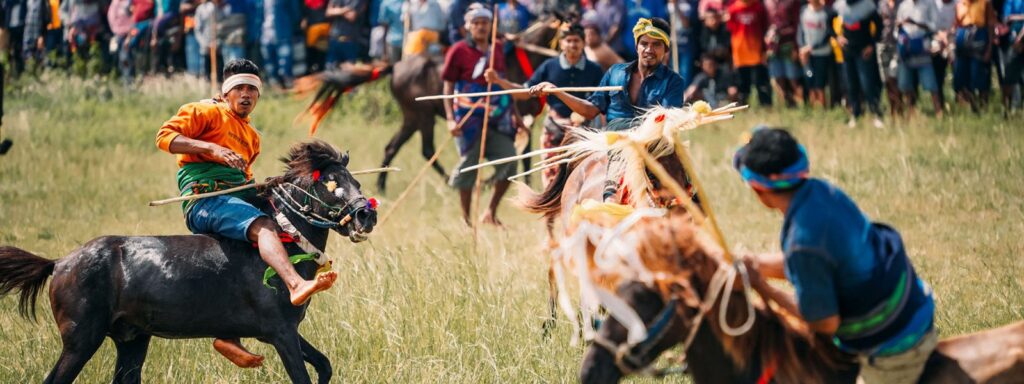
Horseback Riding Festivals vs Horse Shows
Definition and Purpose
Horseback riding festivals and horse shows share similarities but have distinct differences. Horseback riding festivals are events that celebrate and showcase various aspects of horseback riding, encompassing different disciplines and activities. These festivals often have a broader focus on promoting horsemanship, culture, and entertainment. On the other hand, horse shows primarily revolve around competitive events, where riders and horses aim to demonstrate their skills and vie for prizes and placements.
Format and Activities
Horseback riding festivals incorporate a diverse range of activities to engage both participants and spectators. Alongside competitions, festivals may include exhibitions, demonstrations, clinics, parades, live performances, and cultural celebrations. Horse shows, on the other hand, are more structured and revolve around specific classes and divisions to evaluate horse and rider performance. The emphasis at horse shows is on formal judging, scoring, and ranking of competitors based on specific criteria for each discipline.
Audience and Participants
Horseback riding festivals attract a broad spectrum of attendees, including horse enthusiasts, families, tourists, and individuals interested in cultural experiences. Festivals often provide opportunities for both experienced riders and beginners to participate and learn. Horse shows, however, have a primary focus on participants and competitors in the specific discipline being showcased. Competitors at horse shows are typically experienced riders aiming to showcase their skills and potentially qualify for higher-level competitions.
Location and Duration
Horseback riding festivals can take place in various locations, such as open fields, equestrian centers, fairgrounds, or dedicated event venues. The duration of festivals can range from a single day to multiple days or even weeks, depending on the scale and scope of the event. Horse shows are commonly held at equestrian facilities that cater specifically to the discipline showcased. The duration of horse shows often spans several days, allowing for multiple classes and divisions to be held.
Horseback Riding Festivals for Beginners
Choosing the Right Festival
For beginners interested in attending a horseback riding festival, it is important to choose an event that caters to their skill level and interests. Look for festivals that offer beginner-friendly activities, such as guided trail rides, horsemanship clinics, and introductory workshops. These types of festivals provide an inclusive atmosphere and ample opportunities to learn and connect with experienced riders.
Preparing Your Horse and Gear
If you plan to bring your own horse to a festival, ensure that your horse is adequately prepared. This includes ensuring their vaccinations and health check-ups are up to date, as well as preparing appropriate riding gear and equipment. It is crucial to have a well-fitting saddle, bridle, and protective boots for your horse. Additionally, pack necessary items such as water, feed, grooming supplies, and first aid kits.
Taking Lessons and Training
Before attending a horseback riding festival, it is beneficial to take lessons and receive proper training to enhance your riding skills. Lessons will help you develop proper riding techniques, improve your confidence, and ensure your safety during the festival. Seek guidance from professional instructors who can assess your skill level and provide personalized instruction to help you get the most out of the festival experience.
Participating in Fun Activities
Apart from observing and learning, beginner riders can actively participate in various fun activities offered at horseback riding festivals. These can include pony rides, interactive demonstrations, horse grooming sessions, and horsemanship games. Engaging in these activities allows beginners to build a connection with horses, expand their knowledge, and deepen their passion for horseback riding.
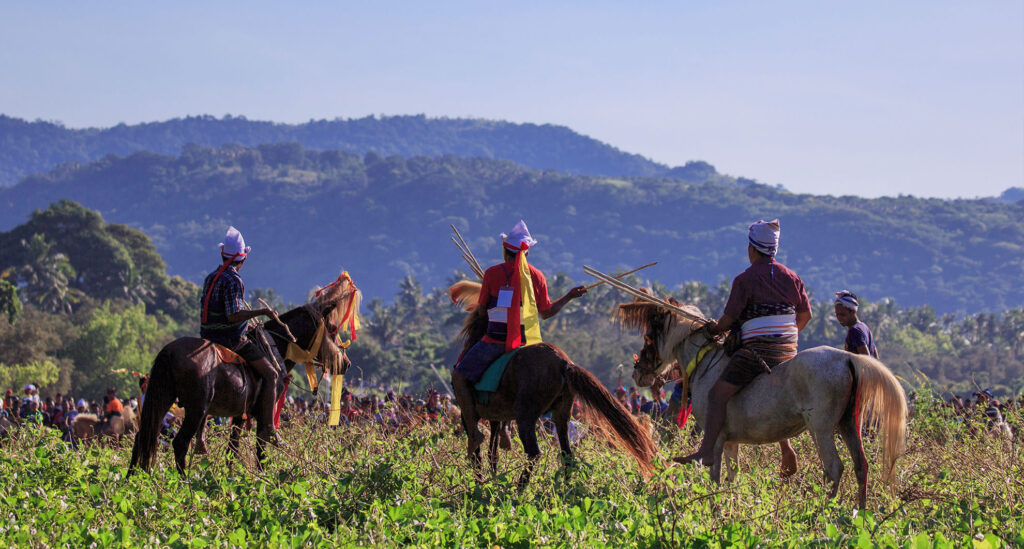
Horseback Riding Festivals for Advanced Riders
Competing in High-Level Events
Advanced riders often seek horseback riding festivals that offer high-level competitions in their specific discipline. These festivals provide opportunities to compete with other experienced riders, showcase their skills, and challenge themselves. Look for festivals that offer classes or divisions catering to advanced riders, such as Grand Prix show jumping, advanced dressage tests, or elite reining competitions.
Showcasing Skill and Technique
Horseback riding festivals for advanced riders are ideal platforms to demonstrate refined skill and technique. Whether it is performing intricate jumps, executing complex dressage movements, or showcasing specialized maneuvers in Western riding, these festivals offer advanced riders the opportunity to display their expertise and mastery of their chosen discipline.
Networking and Learning Opportunities
Attending horseback riding festivals as an advanced rider allows for networking with like-minded individuals, industry professionals, and potential mentors. Festivals often host educational seminars, workshops, and panel discussions, providing opportunities to learn from experts in the field. Networking and connecting with fellow riders and professionals can lead to valuable insights, knowledge sharing, and potential career or training opportunities.
Gaining Recognition and Awards
For advanced riders, participating in horseback riding festivals can lead to recognition and awards based on their performance. Festivals often provide various categories, divisions, and levels for riders to compete in, allowing them to showcase their abilities and potentially earn accolades. Awards can include championship titles, trophies, ribbons, cash prizes, or valuable sponsorships, which can enhance an advanced rider’s reputation and open doors to further opportunities.
How to Attend a Horseback Riding Festival as a Spectator
Choosing the Right Festival
As a spectator, it is important to choose a horseback riding festival that aligns with your interests and preferences. Consider the disciplines showcased, the variety of events and activities offered, and the overall festival atmosphere. Whether you enjoy the excitement of jumping competitions or the elegance of dressage displays, selecting the right festival ensures an enjoyable experience as a spectator.
Getting Tickets and Access
Once you have chosen a festival to attend, check the festival’s website or official channels for ticketing information. Some festivals offer single-day passes, while others may have multi-day packages or VIP options. Plan ahead and purchase tickets in advance to ensure entry and secure good seating for performances. Familiarize yourself with any specific access requirements, parking options, or additional guidelines provided by the festival organizers.
Watching and Enjoying the Performances
As a spectator, one of the highlights of attending a horseback riding festival is watching the performances and competitions. Find a comfortable vantage point that provides a good view of the action and allows you to appreciate the skill and elegance of the horses and riders. Take time to learn about the discipline being showcased, the judging criteria, and the significance of certain movements or techniques.
Exploring Vendors and Exhibitions
Horseback riding festivals often feature a variety of vendors and exhibitions offering equestrian products, services, and information. Take the opportunity to explore these areas and interact with vendors who may have expertise in specific areas of interest. Browse through equestrian equipment, clothing, and accessories, or seek advice on horse care, training techniques, and nutrition. Engaging with vendors and exhibitors can enhance your understanding and appreciation of the equestrian world.
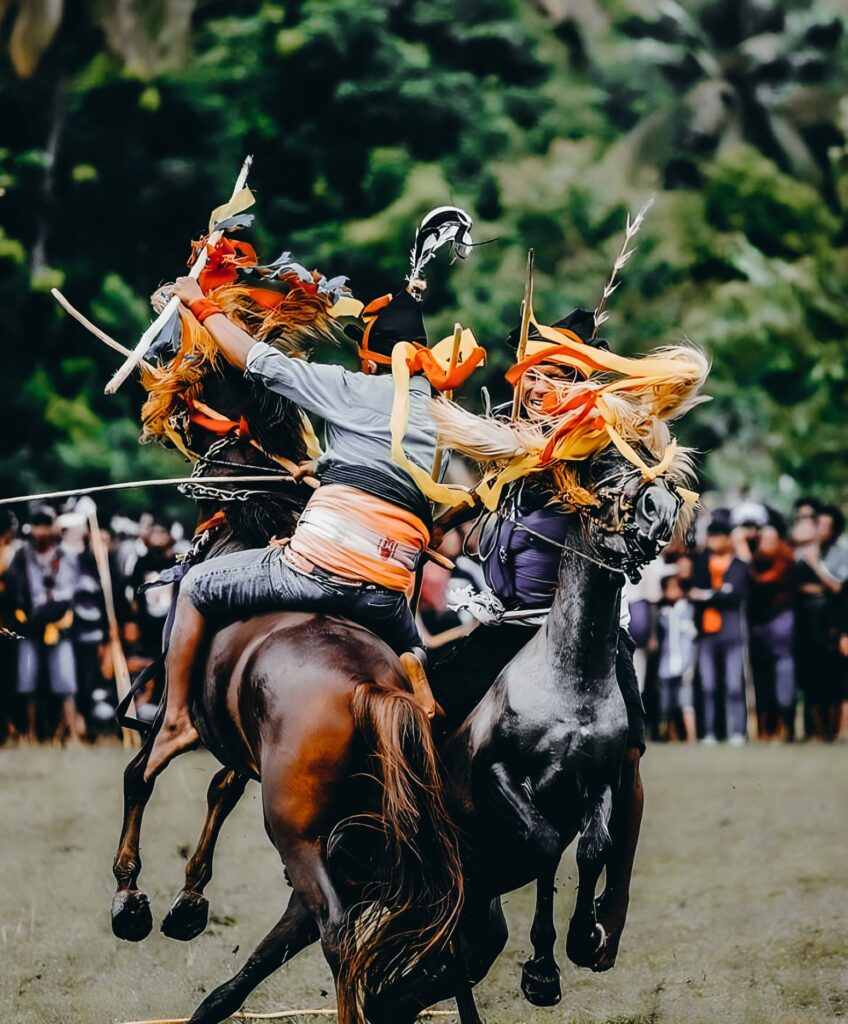
Famous Horses at Horseback Riding Festivals
Iconic Horses in Jumping Competitions
Jumping festivals have been graced by numerous iconic horses that have left their mark in the world of show jumping. Horses like Big Ben, Hickstead, and Gem Twist have become household names, thanks to their outstanding performances in jumping competitions. These exceptional horses have shown incredible athleticism, agility, and bravery, capturing the hearts of spectators and inspiring future generations of riders.
Legendary Horses in Dressage Displays
Dressage festivals have witnessed the presence of legendary horses that have made significant contributions to the discipline. Horses like Valegro, Totilas, and Isabell Werth’s Bella Rose have achieved remarkable success in dressage, setting records and delivering awe-inspiring performances. These horses epitomize the harmony and partnership between horse and rider, showcasing exceptional grace, suppleness, and precision in their movements.
Notable Horses in Endurance Races
Endurance riding festivals have seen the rise of notable horses in the world of long-distance riding. Horses such as Rachael Carsons’ Tsultan and Valerie Kanavy’s Pieraz are celebrated for their incredible stamina, endurance, and ability to navigate challenging terrains. These horses have showcased exceptional fitness and durability, conquering the grueling distances of endurance races and leaving a lasting impression on the endurance riding community.
Famous Horses in Western Riding Events
Western riding festivals have witnessed the presence of famous horses that have excelled in various disciplines within the Western style of riding. Horses like Smart Little Lena, Gunner, and Wimpys Little Step have made significant contributions to reining, cutting, and other Western events. These horses have demonstrated exceptional athleticism, responsiveness, and versatility in Western riding, leaving a lasting impact on the Western horse industry.
The Cultural Significance of Horseback Riding Festivals
Traditions and Customs
Horseback riding festivals often have deep-rooted traditions and customs associated with the discipline being showcased and the cultural heritage of the region. These traditions can include ceremonial dress, parade formations, music, dances, and rituals. By honoring these traditions, festivals help preserve cultural heritage and create an immersive experience for participants and spectators alike.
Historical Background
Many horseback riding festivals have historical significance, as they are rooted in traditions that have been passed down through generations. These festivals often originated from ancient equestrian practices, medieval cavalry displays, or historical events that shaped the relationship between horses and humans. Exploring the historical background of horseback riding festivals adds depth and meaning to the experience, connecting participants with the past and highlighting the evolution of horsemanship.
Celebrations and Festivities
Horseback riding festivals are joyous celebrations of the equestrian world, bringing together riders, enthusiasts, and communities to celebrate the beauty, skill, and bond between horse and rider. Festivals often include festive parades, live music, dances, cultural performances, and social gatherings. These celebrations create a vibrant and festive atmosphere, fostering a sense of camaraderie, unity, and appreciation for the equestrian arts.
Impact on Local Communities
Horseback riding festivals have a significant impact on local communities, both economically and culturally. Festivals attract visitors from near and far, often boosting tourism, local business revenues, and employment opportunities. They also provide an avenue for showcasing local traditions, artisans, cuisine, and cultural heritage. Horseback riding festivals can foster community pride, cultural exchange, and contribute to the overall well-being and development of the local community.
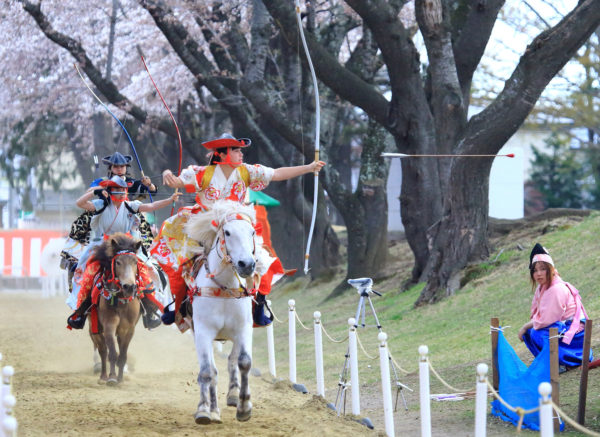
Tips for a Successful Horseback Riding Festival Experience
Planning and Preparation
Plan your horseback riding festival experience well in advance to ensure a smooth and enjoyable time. Research the festival schedule, activities, and any specific requirements or guidelines. Make a checklist of necessary items such as tickets, accommodation arrangements, proper attire, and any equipment or gear needed for your horse. Planning ahead minimizes last-minute stress and allows you to fully immerse yourself in the festival experience.
Choosing the Right Gear and Attire
Select appropriate gear and attire based on the discipline showcased and the nature of the festival. Dress comfortably and consider the weather conditions, as horseback riding festivals can often be held outdoors. Ensure that your horse’s equipment and tack are in good condition and properly fitted. Using appropriate gear and attire enhances safety, comfort, and the overall riding experience.
Managing Your Horse’s Health and Well-being
Prioritize your horse’s health and well-being throughout the festival. Ensure your horse is fit, appropriately fed, and hydrated. Monitor their stress levels and take frequent breaks to allow your horse to rest and recuperate. Follow preventive measures, such as applying fly repellents and checking for any signs of injuries or discomfort. Regularly practice good horsemanship and respect the guidelines set by the festival organizers to ensure the welfare of both you and your horse.
Making the Most of the Festival Atmosphere
Immerse yourself in the festival atmosphere and fully embrace the experience. Engage with fellow attendees, strike up conversations, and share your passion for horseback riding. Take advantage of photo opportunities, visit exhibitions, and explore the festival grounds to fully appreciate the diversity and vibrancy of the equestrian community. Stay open-minded, be respectful of others’ experiences, and be prepared to learn, be inspired, and create lasting memories.
The Future of Horseback Riding Festivals
Incorporating Technology and Innovation
The future of horseback riding festivals may witness the integration of technology and innovation to enhance the overall experience for both participants and spectators. This could include live streaming of events, virtual reality experiences, and interactive platforms that provide real-time updates, results, and educational content. Embracing technology can also facilitate improved safety measures, data analysis for training purposes, and innovative solutions for horse welfare.
Expanding International Participation
Horseback riding festivals have the potential to attract a more diverse international audience, fostering cross-cultural exchange and growing the global equestrian community. By promoting international collaborations, offering travel incentives, and developing inclusive programming, festivals can become global hubs for riders, trainers, and enthusiasts from around the world. This expansion encourages skill sharing, exposes participants to different riding techniques, and broadens the horizons of the equestrian community.
Promoting Sustainability and Animal Welfare
The future of horseback riding festivals lies in promoting sustainable practices and prioritizing the welfare of horses. Festivals can implement measures such as reducing environmental impact, adopting eco-friendly materials, and promoting responsible horsemanship practices. Emphasizing the ethical treatment of horses by ensuring proper care, training methods, and veterinary support will create a more sustainable and compassionate approach to horseback riding festivals.
Attracting New Audiences and Generations
To ensure the longevity and vibrancy of horseback riding festivals, efforts must be made to attract and engage new audiences and younger generations. This can be achieved by incorporating interactive activities, educational initiatives, and youth-focused programs within the festival framework. By adapting to contemporary trends, integrating popular culture references, and highlighting the diverse benefits of horseback riding, festivals can captivate the interest and imagination of a wider audience.

